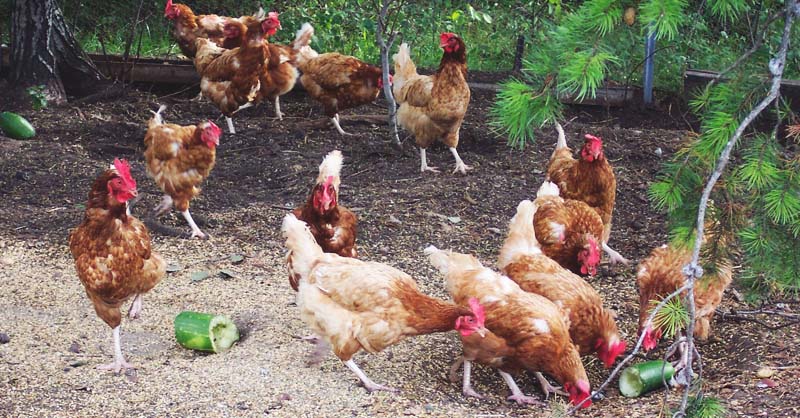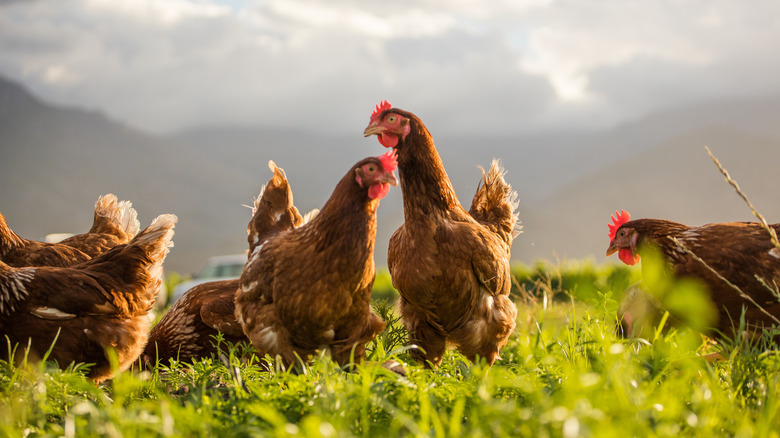Raising healthy chickens is a rewarding endeavor, and one way to ensure the well-being of your flock is by learning how to ferment chicken feed naturally. Fermenting feed can enhance nutrition, improve digestion, and promote overall chicken health. In this guide, we will explore the process of natural fermentation for chicken feed, providing detailed steps and insights to benefit your poultry.

Why Ferment Chicken Feed?
Fermenting chicken feed is a process that has been gaining popularity among poultry enthusiasts. This method not only enhances the nutritional value of the feed but also aids in digestion, making it easier for chickens to absorb nutrients. Fermentation increases probiotics in the feed, which can support a healthy gut.
Benefits of Fermenting Chicken Feed
There are several advantages to fermenting chicken feed. Firstly, it increases the vitamins and minerals available to your birds. Secondly, it helps reduce feed costs as chickens tend to eat less fermented feed while still getting adequate nutrition. Moreover, it can lead to healthier and more productive chickens.
The Science Behind Fermentation
Fermentation is a natural process where microorganisms like bacteria, yeast, and fungi break down sugars and starches in the feed. This process produces lactic acid, which preserves the feed and enhances its nutritional profile. Understanding this process is key to mastering how to ferment chicken feed naturally.
Microorganisms Involved
The primary microorganisms involved in fermentation are lactic acid bacteria. These bacteria thrive in the moist, anaerobic conditions of the fermentation process, producing beneficial acids and enzymes that improve feed quality.
How to Get Started with Fermenting Chicken Feed
Choosing the Right Feed
To begin, select a high-quality chicken feed. It’s essential to use a feed free from additives and preservatives, as these can hinder the fermentation process. Cracked grains, pellets, or mash can all be used.
Equipment Needed
You don’t need much to ferment chicken feed. A non-metallic container, such as a glass jar or plastic bucket, a stirring tool, and a breathable cover are sufficient. Ensure the container is clean to prevent contamination.
The Fermentation Process
Step 1: Preparing the Feed
Start by placing the chicken feed in your chosen container. Fill the container with water, ensuring the feed is completely submerged. Stir the mixture to eliminate air pockets and cover it loosely to allow gases to escape.
Step 2: Fermenting Time
Let the feed sit for three to four days. During this time, stir the mixture daily to ensure even fermentation. You’ll notice bubbles forming, indicating active fermentation. The feed is ready when it has a slight sour smell.
Step 3: Feeding Your Chickens
Once the fermentation process is complete, drain the excess liquid and serve the fermented feed to your chickens. Start with small amounts to allow them to adjust. You can also use the liquid in the next fermentation batch.
Maintaining Fermentation Practices
Consistency is Key
For optimal results, maintain a consistent fermentation routine. Regular feeding of fermented feed will maximize the health benefits for your flock. Keep a schedule to ensure you’re always prepared.
Troubleshooting Common Issues
If you encounter mold or an off-putting odor, discard the batch and start fresh. Ensure your container is clean and the feed remains submerged to prevent spoilage.

FAQs About Fermenting Chicken Feed
Can I ferment any type of chicken feed?
Yes, most types of chicken feed can be fermented, but it’s best to use feed without preservatives or additives.
How often should I feed fermented feed to my chickens?
Fermented feed can be given daily, but it’s important to introduce it gradually to your chickens’ diet.
What should I do if my chickens don’t eat the fermented feed?
If your chickens are hesitant, mix the fermented feed with their regular feed until they grow accustomed to it.
Fermenting chicken feed is a simple yet effective way to boost your chickens’ health and productivity. By following these steps, you can create a sustainable feeding routine that benefits both your flock and your budget. For additional tips on chicken care, check out herbs safe for chickens and natural wormers for chickens.
This article contains affiliate links. We may earn a commission at no extra cost to you.











